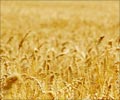For the many people following a gluten-free diet without a formal diagnosis of celiac disease, all that might be required is a blood test before, and four hours after, a small meal of gluten.

‘A potential blood-based test would be a vast improvement on the current approach which requires people to consume gluten for a number of weeks, and even months, for the testing to be accurate.’





The peer-reviewed study included the Walter and Eliza Hall Institute of Medical Research in Australia, University of Oslo in Norway, and in the U.S., Massachusetts General Hospital and University of Chicago. The study was led by Boston-based biotechnology company ImmusanT Inc.
Associate Professor Jason Tye-Din, head of coeliac research at the Institute and a gastroenterologist at The Royal Melbourne Hospital said work was now underway to explore the development of a simple blood test for coeliac disease. "For the many people following a gluten-free diet without a formal diagnosis of coeliac disease, all that might be required is a blood test before, and four hours after, a small meal of gluten. "This would be a dramatic improvement on the current approach, which requires people to actively consume gluten for at least several weeks before undergoing an invasive procedure to sample the small intestine," Associate Professor Tye-Din said.
Coeliac disease affects approximately 1.4 per cent of people globally, many of whom remain undiagnosed. Symptoms of the disease are caused by a damaging immune response to gluten. After consuming gluten, patients can experience reactions such as nausea, vomiting, abdominal pain and diarrhoea.
Dr Bob Anderson, a joint senior author of the paper and the Chief Scientific Officer of ImmusanT Inc., said the new findings could address an important medical need.
"For the first time we have described the inflammatory reaction that patients with coeliac disease experience in the immediate hours after they are exposed to gluten.
Advertisement
"This information underpins a potential new approach to diagnosis that addresses the emerging medical need to identify patients without coeliac disease who may be better served by other treatments for their chronic symptoms," Dr Anderson said.
Advertisement
Subsequent testing showed the consumption of gluten produced the same IL-2 response in people with coeliac disease.
CEO of Coeliac Australia, Ms Michelle Laforest, said the finding would be welcome news for the coeliac community in Australia.
"The potential for a one-off gluten challenge and blood test could make a significant difference to many thousands of Australians who report sensitivity to gluten but have been unable to tolerate the current testing approach.
"It is clear this research has the potential to revolutionise the current testing regime for coeliac disease globally," Ms Laforest said.
Source-Eurekalert















